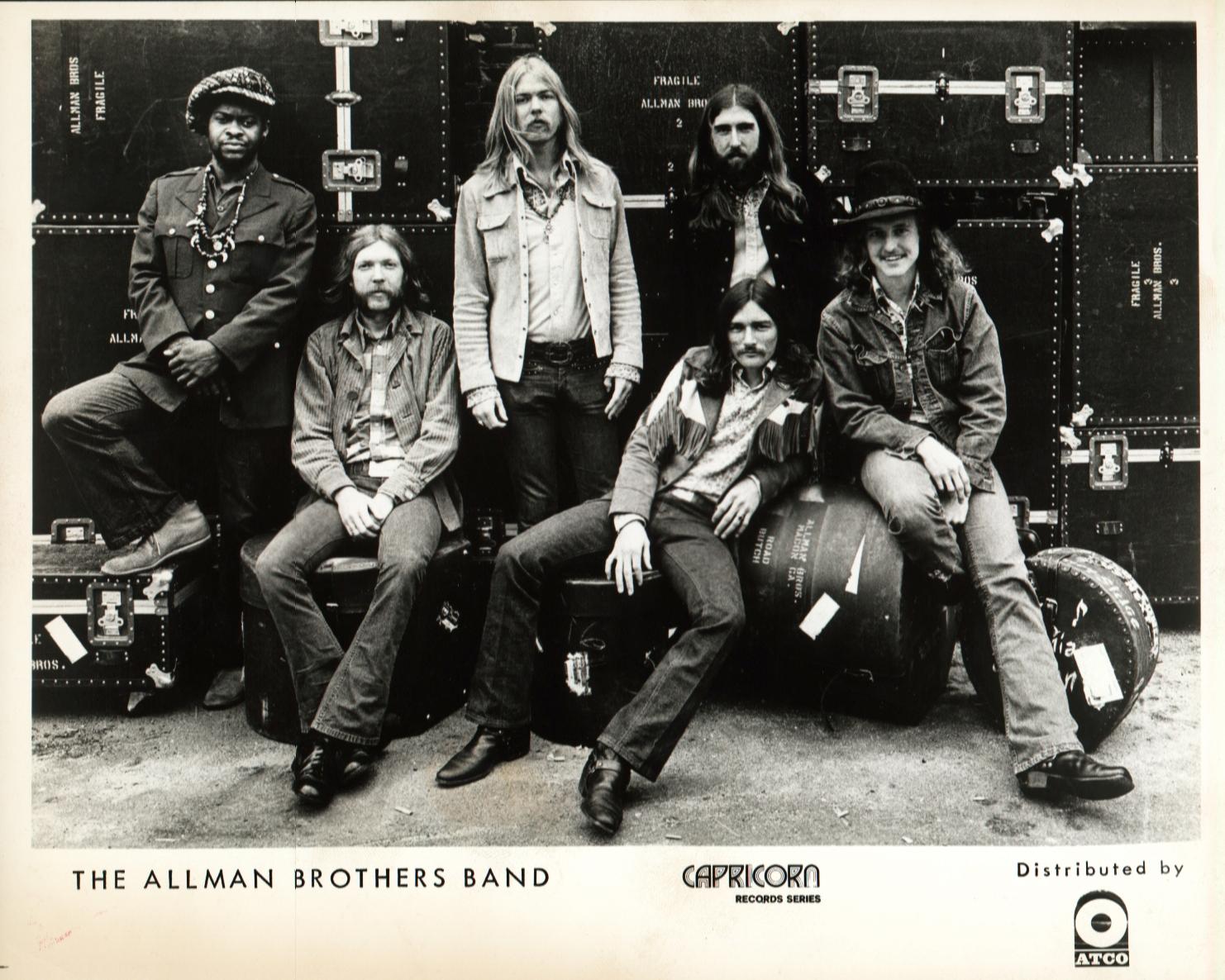John Allman Brothers have left an indelible mark on the landscape of rock and blues music. This legendary band, known for their unique fusion of Southern rock, blues, and jazz, has influenced countless musicians and captivated audiences around the world. In this article, we will delve into the history of the Allman Brothers, their significant contributions to music, and the lasting impact they have had on the industry.
The Allman Brothers Band was formed in 1969 in Macon, Georgia, and quickly gained a reputation for their exceptional musicianship and improvisational skills. With hits like "Ramblin' Man" and "Jessica," the band not only produced timeless music but also created a loyal fan base that continues to thrive today. As we explore their journey, we will uncover the stories behind their iconic songs, the challenges they faced, and their evolution over the decades.
Throughout this article, we will also examine the individual members of the Allman Brothers, their personal stories, and how their experiences shaped the band's sound and direction. By the end of this comprehensive exploration, readers will gain a deeper appreciation for the Allman Brothers and their contributions to music history.
Table of Contents
- Biography of the Allman Brothers Band
- Band Members' Personal Data
- Musical Style and Influences
- Iconic Songs and Albums
- Live Performances and Festivals
- Challenges and Triumphs
- Legacy and Influence
- Conclusion
Biography of the Allman Brothers Band
The Allman Brothers Band was founded by brothers Duane and Gregg Allman along with Dickey Betts, Berry Oakley, Butch Trucks, and Jaimoe. The band's roots can be traced back to the late 1960s when the Allman brothers began performing in various bands across the South.
In 1969, the band released their self-titled debut album, which showcased their unique blend of blues and rock. However, it was their second album, "Idlewild South," that began to establish their reputation. The band's sound was characterized by dual guitar harmonies, extended improvisational jams, and a strong rhythm section.
Band Members' Personal Data
| Name | Instrument | Birth Date | Notable Contributions |
|---|---|---|---|
| Duane Allman | Guitar | November 20, 1946 | Co-founder, lead guitar, and primary songwriter |
| Gregg Allman | Vocals, Keyboard | December 8, 1947 | Lead vocalist and songwriter |
| Dickey Betts | Guitar | December 12, 1943 | Primary songwriter and guitarist |
| Berry Oakley | Bass | April 4, 1948 | Bassist and key contributor to the band's sound |
| Butch Trucks | Drums | May 11, 1947 | Drummer and co-founder |
| Jaimoe | Drums | July 8, 1951 | Drummer and co-founder |
Musical Style and Influences
The Allman Brothers Band is often credited with pioneering the Southern rock genre. Their sound is a unique blend of rock, blues, jazz, and country, heavily influenced by artists such as Muddy Waters, B.B. King, and the Grateful Dead.
Key elements of their music include:
- Extended improvisational jams that showcase musicianship.
- Harmonized guitar lines, primarily between Duane Allman and Dickey Betts.
- The incorporation of jazz elements through intricate rhythms and arrangements.
- Emotional and soulful lyrics, often reflecting themes of love, loss, and life experiences.
Iconic Songs and Albums
The Allman Brothers Band produced a plethora of iconic songs that remain timeless to this day. Some of their most notable tracks include:
- “Ramblin' Man” - A classic hit that showcases their Southern rock sound.
- “Jessica” - An instrumental piece that highlights the band's intricate guitar work.
- “Whipping Post” - A powerful song that has become synonymous with their live performances.
- “Midnight Rider” - A haunting ballad that displays Gregg Allman's vocal prowess.
Throughout their career, the Allman Brothers released several influential albums, including:
- The Allman Brothers Band (1969)
- Idlewild South (1970)
- At Fillmore East (1971)
- Brothers and Sisters (1973)
Live Performances and Festivals
One of the defining aspects of the Allman Brothers Band was their live performances. Their concerts were renowned for their extended jams and improvisational spirit, attracting fans from all walks of life. The band's performance at Fillmore East in 1971 is often regarded as one of the greatest live albums in rock history.
The Allman Brothers were also a regular presence at major music festivals, including:
- Woodstock
- Peach Music Festival
- Allman Brothers Band's annual Peach Festival
Challenges and Triumphs
The Allman Brothers faced numerous challenges throughout their career, including the tragic deaths of key members. Duane Allman died in a motorcycle accident in 1971, followed by Berry Oakley just a year later. These losses deeply affected the band and their music.
Despite these hardships, the Allman Brothers persevered and continued to evolve, welcoming new members and adapting their sound. Their ability to overcome adversity and maintain their artistic integrity has solidified their place in music history.
Legacy and Influence
The Allman Brothers Band's legacy is profound, influencing generations of musicians across various genres. Their innovative approach to songwriting and live performance has inspired countless artists, from rock to country to blues. They have been inducted into the Rock and Roll Hall of Fame and continue to be celebrated for their contributions to music.
Notable artists influenced by the Allman Brothers include:
- Gov't Mule
- Widespread Panic
- Phish
Conclusion
In conclusion, the Allman Brothers Band remains a monumental force in the world of music. Their unique sound, exceptional musicianship, and enduring influence have left a lasting legacy that continues to resonate with fans and musicians alike. As we reflect on their journey, it is clear that the Allman Brothers are much more than just a band—they are an integral part of music history.
We invite you to share your thoughts on the Allman Brothers Band in the comments below. If you enjoyed this article, consider sharing it with fellow music enthusiasts or exploring more articles on our site about legendary artists and their contributions to the music industry.




